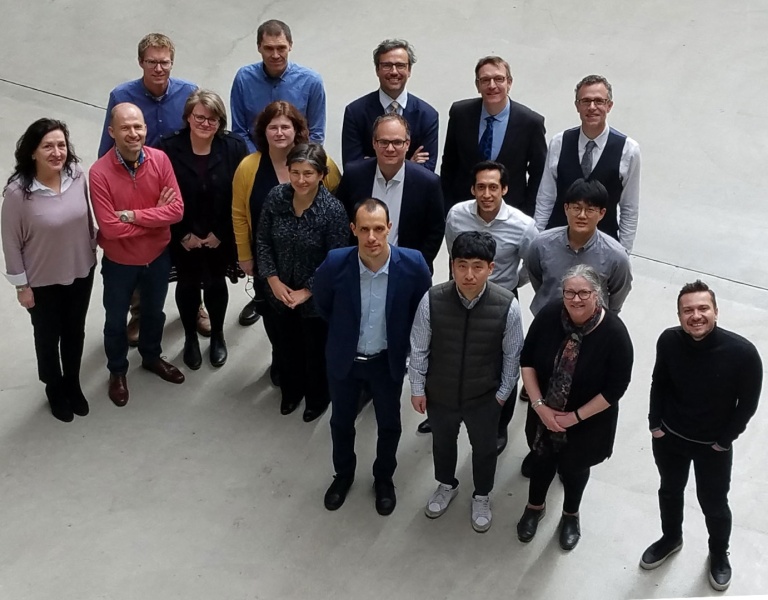User-centred energy systems technology collaboration programme
The USERS TCP vision is to be the world-leading international collaboration platform for policy-relevant socio-technical research on user-centred energy systems.
The User-Centred Energy Systems mission is to provide evidence from socio-technical research on the design, social acceptance and usability of clean energy technologies to inform policy making for clean, efficient and secure energy transitions. The USERS TCP Executive Committee Representatives for Ireland are Ms. Hannah Julienne (SEAI) and Mr. Ciarán Lavin (SEAI).
For further information, please visit the IEA USERS TCP webpage.

Hannah Julienne
Hannah Julienne
Hannah Julienne leads the Behavioural Economics Unit at SEAI. The unit uses a behavioural science approach to better understand and address the human factors that influence energy behaviours and the uptake of sustainable energy solutions. Prior to joining SEAI in 2021, Hannah was a Postdoctoral Research Fellow in the Behavioural Research Unit at the Economic and Social Research Institute (ESRI), conducting behavioural experiments to inform policy in a range of areas including consumer protection and health. She holds a PhD in Neural Dynamics from the University of Bristol.
Contact: [email protected]

Ciarán Lavin
Ciarán Lavin
Ciarán Lavin is a Senior Behavioural Scientist in the Behavioural Economics Unit (BEU) at SEAI. The BEU applies behavioural science to understand energy consumption behaviour in Ireland and identify ways to make it more efficient. Ciarán's background is in psychology and cognitive science. Before joining the SEAI in 2023, he was a member of the Behavioural Research Unit at the Economic and Social Research Institute. There he gained extensive experience in the application of behavioural science methods to inform policy in a range of areas.
Contact: [email protected]
Annexes
The aim of this Annex is to improve the efficacy of demand-side energy policies by ensuring that human behaviour is accounted for at all stages of the policy cycle.
The Representative for this Annex is Ms. Hannah Julienne (SEAI).
For further information about the Annex, please visit the Energy Sector IEA USERS TCP webpage.
The Social License to Automate Task investigates the social dimensions of user engagement with automated technologies in energy systems to understand how end-user trust to automate is built and maintained in different jurisdictions and cultural settings.
The Representatives for this Annex are Bernadette Power (UCC), John Eakins (UCC), Geraldine Ryan (UCC).
For further information about the Annex, please visit the Social License to Automate IEA USERS TCP webpage.
The aim of this Annex is to analyse energy policy and technologies from gender perspectives and provide recommendations for policy design and implementation.
The Representatives for this Annex are Dr. Niall Dunphy (University College Cork) and Dr. Alexandra Revez (University College Cork).
For further information about the Annex, please visit the Empowering All IEA USERS TCP webpage.
The aim of this Annex is to understand the policy, regulatory, social and technological conditions necessary to support the wider deployment of peer-to-peer, community self-consumption and transactive energy models.
The Representatives for this Annex are Dr. Shafi Khadem (International Energy Research Centre) and Mr. Brian O'Regan (International Energy Research Centre).
For further information about the Annex, please visit the Global Observatory IEA USERS TCP webpage.
The aim of this Annex is toidentify common challenges and drivers for effective public engagement for energy infrastructure in relation to social, psychological, technical and institutional aspects; and to collect evidence from international case studies about which public engagement approaches are effective or ineffective
develop best practice guidance for public engagement around energy infrastructure
The Representatives for this Annex are Aoife Deane and Evan Boyle (University College Cork).
For further information about the Annex, please visit the Public Engagement IEA USERS TCP webpage.
Archived Annexes
The aim of this Annex was to contribute to the growth of the supply and demand market for energy efficiency and Demand Side Management (DSM) amongst SMEs and communities in participating countries.
The Representatives for this Annex were Ms. Joanna Southernwood (International Energy Research Centre) and Dr. Matthew Kennedy (International Energy Research Centre).
For further information about the Annex, please visit the Business Models IEA USERS TCP webpage.
Participate in the USERS TCP
Interested in representing Ireland in an IEA Technology Collaboration Programme? Find out about our appointment process.
Appointment process